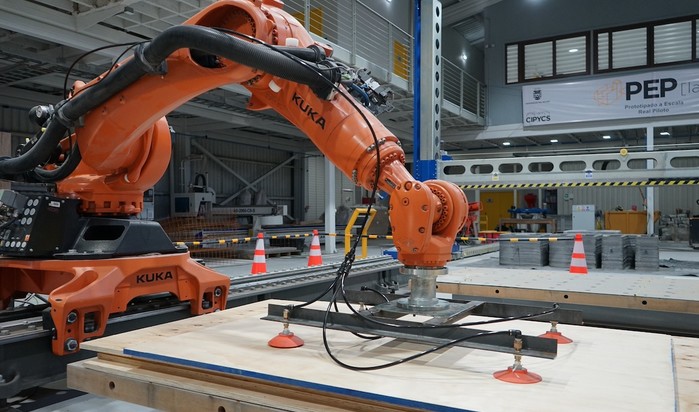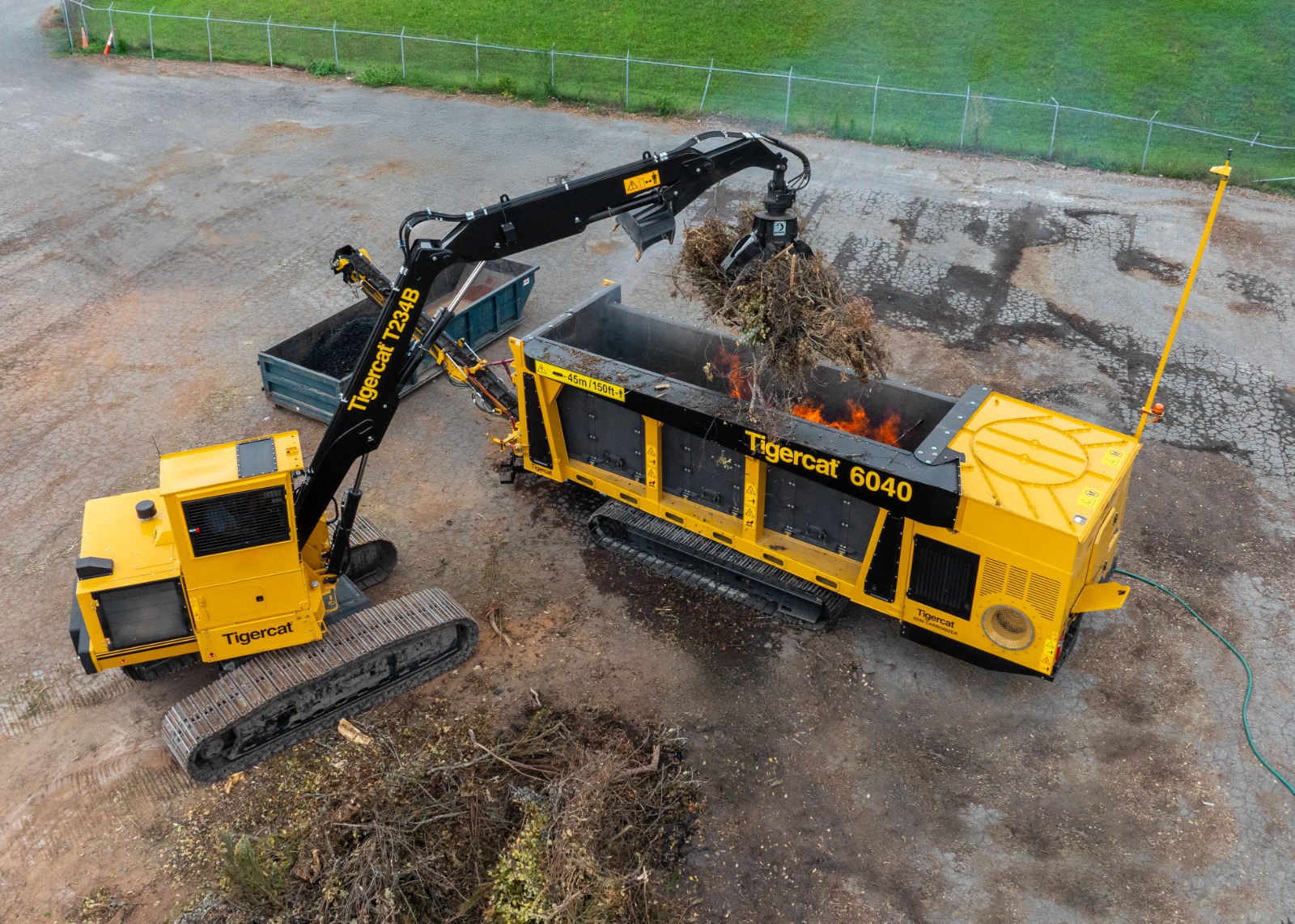The timber industry in Biobío is steadily advancing toward automation and digital transformation, thanks to the collaborative efforts of the University of Bío-Bío, the company SSGM, and the support of Corfo through the PATI Project (Program for Supporting Technological Transfer and Innovation).
One of the most relevant pilot cases within this initiative is led by SSGM, a regional company dedicated to plywood manufacturing, which is preparing for the future implementation of a robotic arm to modernize its production processes.
Currently, while awaiting the arrival of the robot acquired by the company, SSGM is conducting tests at the University of Bío-Bío’s Pilot Experimental Prototyping Laboratory (PEP Lab), using the robot available at the institution. These tests have included connecting the robot to control systems, movement trials, and pneumatic tests, aiming to ensure that SSGM’s future robotic arm can lift and transport plywood panels precisely, safely, and efficiently.
Rodrigo Gallardo, a technological innovation project engineer at the PATI Project, emphasized the importance of these tests. "It’s crucial because, once the robot is operational in the plant, it must be able to lift and move the panel from one place to another within a set time, without dropping it, stopping, or causing accidents. If we make this test work well, we won’t face issues in the plant, and production goals will be met," he explained.
The initiative not only includes the arrival of the physical equipment. In parallel, monitoring software is being developed to provide real-time data on the robotic arm’s operation and production processes. This tool will be key for decision-making, resource optimization, and equipping SSGM with capabilities aligned with Industry 4.0.
Rodrigo Moraga, General Manager of SSGM, highlighted the strategic importance of the project. "We have many processes that are not automated, and we’ve understood how vital it is to incorporate new technologies, especially robotics, to improve efficiency, quality, and reduce production costs. By the time our robotic arm arrives, we’ll already have over 80% of the setup completed, ensuring the equipment will operate under optimal conditions," he stated.
The installation of the robotic arm at SSGM’s plant is scheduled for late July, marking a milestone in the modernization of the regional industry. Corfo and the PATI Project encourage more companies to engage with universities and leverage their technological and innovation capabilities.
"The project aims to build technological capabilities in companies so they can adopt automation and Industry 4.0-related technologies. It’s essential for businesses to approach universities and take advantage of their resources to develop concrete solutions for the industry," Gallardo concluded.
With initiatives like this, the Biobío region strengthens its path toward a more competitive, safer, and digitally prepared industry.







Comments (0)
No comments yet. Be the first to comment!
Leave a comment